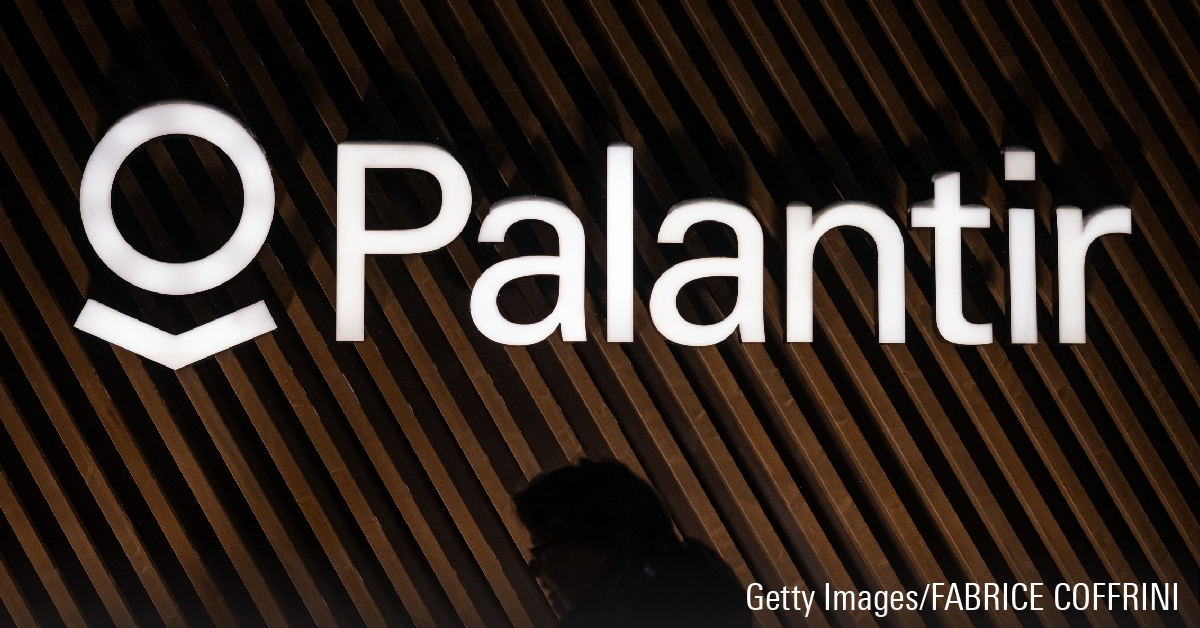Michael Hatcher, head of global equities and director of research at Trimark Investments, says that after a disappointing performance in 2015, developed-market stocks put in a better showing in the first nine months of 2016.
Furthermore, he says, emerging-market equities staged a comeback in the nine months to the end of September, after their poor returns for 2015.
A value manager, Hatcher cautions that he has been finding it challenging this year to find stocks that meet his criteria. Focusing on the MSCI ACWI Investable Market Index, this all-country world index, says Hatcher, produced a total return in U.S. dollars of 7.5% in the first nine months of 2016 and 12.9% in the 12 months to the end of September versus a negative 1.7% for 2015. (This benchmark index tracks stocks in 23 developed markets and 23 emerging markets and covers almost 100% of global equity opportunities.)
At the end of September, this all-country index traded at a trailing price/earnings multiple of 21.5 times and a forward multiple of 15.9 times. "These are hardly compelling valuations," Hatcher says.
On emerging markets, Hatcher notes that their rebound so far this year reflects mainly an improvement in investor sentiment rather than a change in the companies' fundamentals. "These stocks were down last year and have simply recovered," he says. "I find emerging markets to be fairly valued at this stage."
As for developed markets, Hatcher says that apart from a few select U.S. companies that have seen their stocks come under pressure because of company-specific issues, "the pickings have been fairly slim."
At Trimark Investments, a division of Toronto-based Invesco Canada Ltd., Hatcher's wide-ranging responsibilities include that of lead manager of the flagship Trimark Fund and other key mandates such as Trimark Global Fundamental Equity and Trimark Global Dividend Class.
Essentially a bottom-up stock picker, Hatcher's investment horizon is longer term. He targets companies that are prominent in the markets they serve, have sustainable competitive advantages and operate in a field where there are high barriers to entry. The companies must produce high returns on invested capital and have strong, predictable cash flow. Hatcher then calculates the intrinsic value of these companies and compares this to the market's valuation of the company.
 |
|
 |
|
| Michael Hatcher | |
 |
|
 |
|
 |
As a result of stock selection, Trimark Fund, with 37 names, holds some 47% in U.S.-based companies, 15% in emerging-market companies including 8% of the portfolio in China, 13% in continental Europe and 11% in UK-based companies.
The major sector weightings in the Trimark Fund are in industrials, information technology, consumer staples and health care. Despite the overall challenge of finding value in the global equity market, Hatcher reports that he has unearthed a few U.S. small-to-mid-cap companies that meet his stringent criteria.
A newer addition to Trimark Fund is ![]() Stericycle, Inc. (SRCL). This U.S.-based company provides medical-waste removal and information-destruction services. About a year ago, Stericycle completed the acquisition of Shred-It International Inc., based in Ontario, says Hatcher. Before that, Stericycle had garnered considerable investor support in recognition of its well-developed infrastructure for disposing of highly regulated waste materials, mainly in the United States. "Its comprehensive infrastructure in this business provides it with economies of scale and makes it difficult for new entrants to challenge it."
Stericycle, Inc. (SRCL). This U.S.-based company provides medical-waste removal and information-destruction services. About a year ago, Stericycle completed the acquisition of Shred-It International Inc., based in Ontario, says Hatcher. Before that, Stericycle had garnered considerable investor support in recognition of its well-developed infrastructure for disposing of highly regulated waste materials, mainly in the United States. "Its comprehensive infrastructure in this business provides it with economies of scale and makes it difficult for new entrants to challenge it."
Hatcher says investors have been skeptical about the wisdom of Stericycle's purchase of Shred-It. But he does not share this concern. "Stericycle is having its challenges integrating Shred-It's operations, but this acquisition does broaden Stericycle's offering and it is currently working through the integration challenges."
A stock that Hatcher started buying toward the end of 2015 and has been adding to since is ![]() W.W. Grainger, Inc. (GWW). This company is a business-to-business distributor of a wide range of products used to maintain, repair and operate facilities, including industrial undertakings.
W.W. Grainger, Inc. (GWW). This company is a business-to-business distributor of a wide range of products used to maintain, repair and operate facilities, including industrial undertakings.
"These are high-frequency purchases and Grainger provides a one-stop offering that even includes an inventory stocking and management service within its client's company," says Hatcher, adding that there is a lot of repeat business. Grainger is a solid cash-flow generator and has increased its dividend for some 44 consecutive years, he notes.
There was an opportunity to start accumulating the stock, he says, as investors were concerned about Grainger's business in Canada, with a lot of that "skewed to Alberta." Also, the company was experiencing losses in some of its Latin American operations. "But the Alberta economy is gaining traction with a higher oil price and the company is rationalizing its money-losing businesses in Latin America."
A long-standing holding that also sells a "wide range of smaller-ticket items that are, in many cases consumable," says Hatcher, is ![]() Becton, Dickinson & Co. (BDX). This global player in medical supplies specializes in making needles and syringes. "It is broadening its product offering and looking to trim costs," says Hatcher. "There are high barriers to entry in its business and this, combined with the fact that its products are low cost and necessary in the provision of health care, makes it less vulnerable to an adverse change in the economic or regulatory climate." Like W.W. Grainger, Becton Dickinson also has a long history of raising its dividend each year, he adds.
Becton, Dickinson & Co. (BDX). This global player in medical supplies specializes in making needles and syringes. "It is broadening its product offering and looking to trim costs," says Hatcher. "There are high barriers to entry in its business and this, combined with the fact that its products are low cost and necessary in the provision of health care, makes it less vulnerable to an adverse change in the economic or regulatory climate." Like W.W. Grainger, Becton Dickinson also has a long history of raising its dividend each year, he adds.
| Becton, Dickinson & Co. | Stericycle Inc. | W.W. Grainger, Inc. | |
 |
|||
| Oct. 24 close | $172.16 | $74.47 | $204.79 |
 |
|||
| 52-week high/low | $181.76-$129.50 | $128.94-$72.89 | $239.95-$176.85 |
 |
|||
| Market cap | $36.5 billion | $6.4 billion | $12.3 billion |
 |
|||
| Total % return 1Y* | 24.7 | -38.1 | 0.8 |
 |
|||
| Total % return 3Y* | 19.2 | -13.4 | -4.2 |
 |
|||
| Total % return 5Y* | 18.6 | -2.8 | 6.0 |
 |
|||
 |
|||
| *As of Oct. 24, 2016. All figures in U.S. dollars Source: Morningstar |
|||
In picking his spots in the global financial-services sector, Hatcher has long been wary of European financial institutions. "They are complicated, opaque organizations that are facing increasing capital requirements and regulation," he says. "In all, it is difficult to assess the risks associated with them."
A more traditional U.S. financial intermediary that has been in the portfolio for some time, but that recently ran aground after serious governance issues surfaced, is ![]() Wells Fargo & Co. (WFC). This was a top-10 holding in Trimark Fund at the end of September. The bank, says Hatcher, is addressing the problem of improper sales practices in its retail-banking business. "The culture of aggressively promoting cross-selling of products to consumers and small businesses is being determinedly altered," he says.
Wells Fargo & Co. (WFC). This was a top-10 holding in Trimark Fund at the end of September. The bank, says Hatcher, is addressing the problem of improper sales practices in its retail-banking business. "The culture of aggressively promoting cross-selling of products to consumers and small businesses is being determinedly altered," he says.
"Most major North American banks are likely reviewing their cross-selling practices in the light of Wells Fargo's scandal," says Hatcher. While this current misstep is a setback for Wells Fargo, the bank still has "a powerful franchise and will likely make the necessary changes to ensure that this remains intact." Hatcher added to Trimark Fund's holding in Wells Fargo, when the stock pulled back in the wake of the bank's high-profile problems.
Another top-10 financial-services holding is ![]() Northern Trust Corp. (NTRS), which Hatcher says is a leading global provider of custodial services to institutional clients. "There are high barriers to entry in this business." Northern Trust is also a large investment manager, with a specialty in high-net-worth clients, he notes. "Client retention in both these businesses is high."
Northern Trust Corp. (NTRS), which Hatcher says is a leading global provider of custodial services to institutional clients. "There are high barriers to entry in this business." Northern Trust is also a large investment manager, with a specialty in high-net-worth clients, he notes. "Client retention in both these businesses is high."
A number of leading global brand names in consumer staples have been long-standing holdings in the portfolio, "but this sector has become expensive," says Hatcher. As a result, he says, he has lowered the fund's weighting in ![]() British American Tobacco PLC (BTI). He has also reduced the fund's holdings in the premium-drinks company
British American Tobacco PLC (BTI). He has also reduced the fund's holdings in the premium-drinks company ![]() Diageo PLC, which has an American Depository Receipt (ADR) and trades on the New York Stock Exchange under the ticker DEO.
Diageo PLC, which has an American Depository Receipt (ADR) and trades on the New York Stock Exchange under the ticker DEO.



















